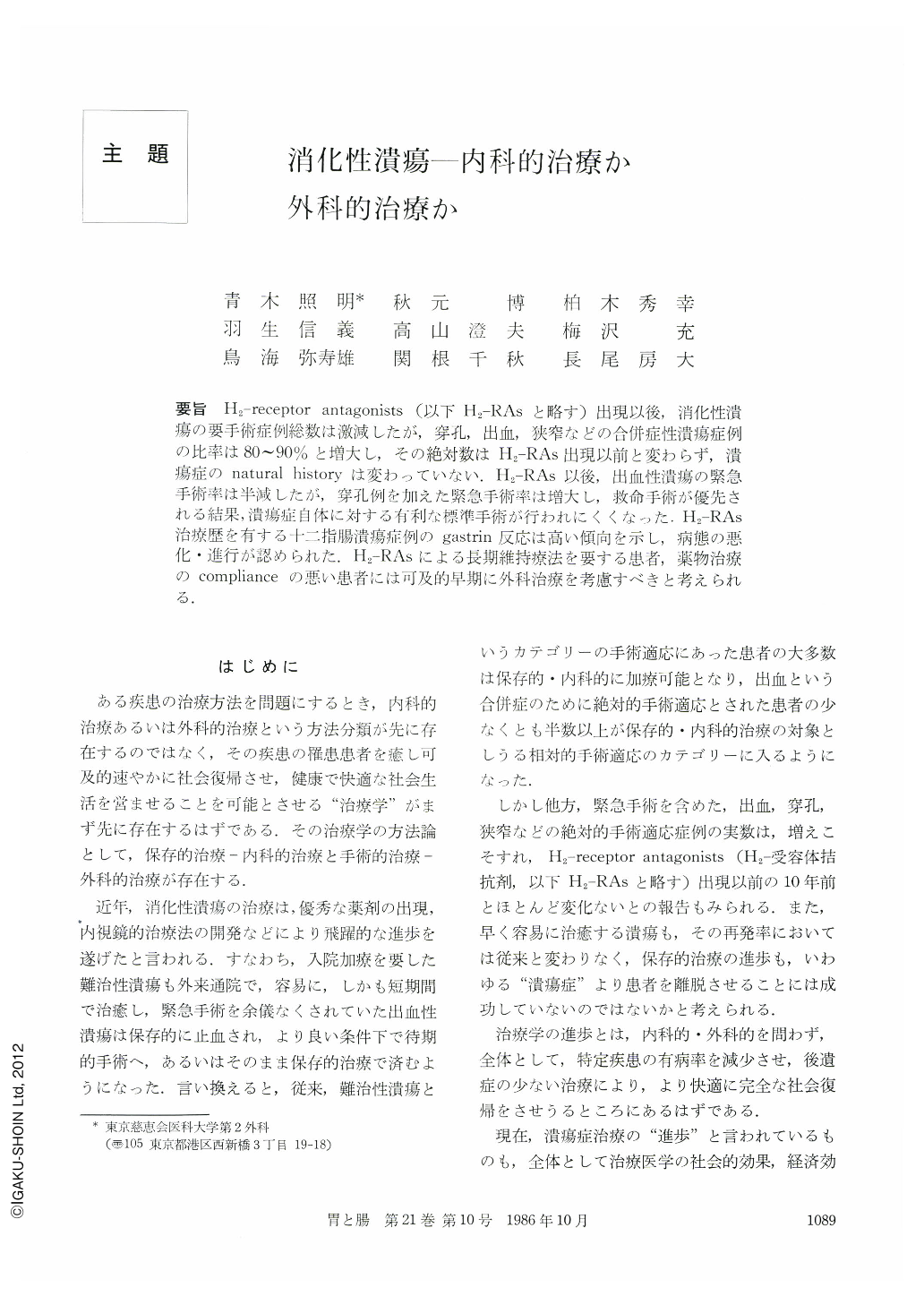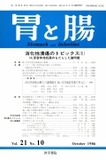Japanese
English
- 有料閲覧
- Abstract 文献概要
- 1ページ目 Look Inside
要旨 H2-receptor antagonists(以下H2-RAsと略す)出現以後,消化性潰瘍の要手術症例総数は激減したが,穿孔,出血,狭窄などの合併症性潰瘍症例の比率は80~90%と増大し,その絶対数はH2-RAs出現以前と変わらず,潰瘍症のnatural historyは変わっていない.H2-RAs以後,出血性潰瘍の緊急手術率は半減したが,穿孔例を加えた緊急手術率は増大し,救命手術が優先される結果,潰瘍症自体に対する有利な標準手術が行われにくくなった.H2-RAs治療歴を有する十二指腸潰瘍症例のgastrin反応は高い傾向を示し,病態の悪化・進行が認められた.H2-RAsによる長期維持療法を要する患者,薬物治療のcomplianceの悪い患者には可及的早期に外科治療を考慮すべきと考えられる.
The introduction of H2-receptor antagonists (H2-RAs) into the treatment modalities of peptic ulcer disease increased the proportion of patients with ulcer complications such as perforation, bleeding or stenosis up to 80-90% among surgically treated patients. Some of them were in “too late” stage beyond the “adequate” timing of the treatment.
The absolute number of the surgical patients with the ulcer complications remained the same as before “the H2-RAs era” (Fig. 1).
Consequently, the ratio of emergency operations has increased as the number of “life-saving operations” increased. And not infrequently these operations have been carried out in patients who were not good candidates in treating peptic ulcer disease itself. The number of emergency operations for bleeding peptic ulcer, however, has significantly decreased (Table 1
).
Gastrin responses to the provocation tests in duodenal ulcer patients previously treated with H2-RAs were significantly increased compared with that in non-treated patients (Fig. 5).
Thus, ealier surgical interventions are recommended in the patients,
1) being poorly compliant to the medications;
2) requiring long term maintenance treatment with H2-RAs,
in order to increase the proportion of elective and therefore safer operations and to prevent the occur-rence of unfavorable effects of H2-RAs on antral G-cells as well as other side effects yet to be known.

Copyright © 1986, Igaku-Shoin Ltd. All rights reserved.


